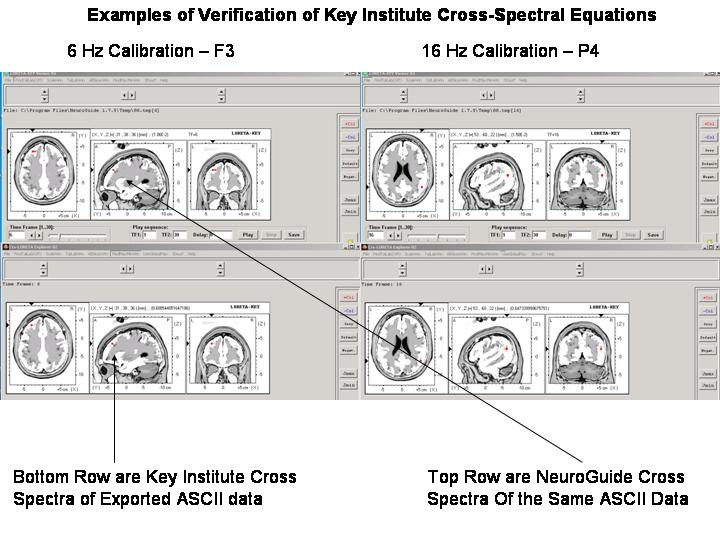3-Dimensional Source
Localization and
a LORETA Normative Database: Birth to 82 Years
  



Once the Key Institute software (www.unizh.ch/keyinst/NewLORETA/Software/Software.htm) is installed on the users computer then the LORETA viewer program can be
launched directly from the NeuroGuide edit window. See the Key Institute
documentation to learn how the cross-spectrum and *.crs file is computed.
To review the Functional Location
Literature click on the following links:
3-Dimensional LORETA
Normative Database




The
LORETA normative database used the Key Institute's
'T'
matrix and cross-spectrum equations to
compute the cross-spectrum of the EEG from each subject in the NeuroGuide
normative database (click
here for a description of the selection criteria and age range, etc.)
for each 2,394 gray matter pixel. The NeuroGuide software was tested by
comparisons to the Key Institute software programs. After log10
transforms of the Key Institute current density values, the means and standard
deviations of the 2,394 LORETA currents were computed for different age groups
from birth to 82 years thus enabling a Z score to be computed for each of the
2,394 gray matter pixels and displayed using the LORETA viewer and the Key
Institute cross-spectral equations. For further detail see
how tests of Gaussian distributions and cross-validations were computed.

Time
domain export is also available using NeuroGuide so that individual EEG events
can be examined in detail in the time domain as well as to compare source
localization in the frequency domain.
Export the digital time series to the Key Institute's
LORETA EEG Cross-Spectra program and verify the equivalence of the Key Institute
LORETA Explorer for EEG Cross-Spectra to the same data computed by NeuroGuide.

Contact us for more information
| 